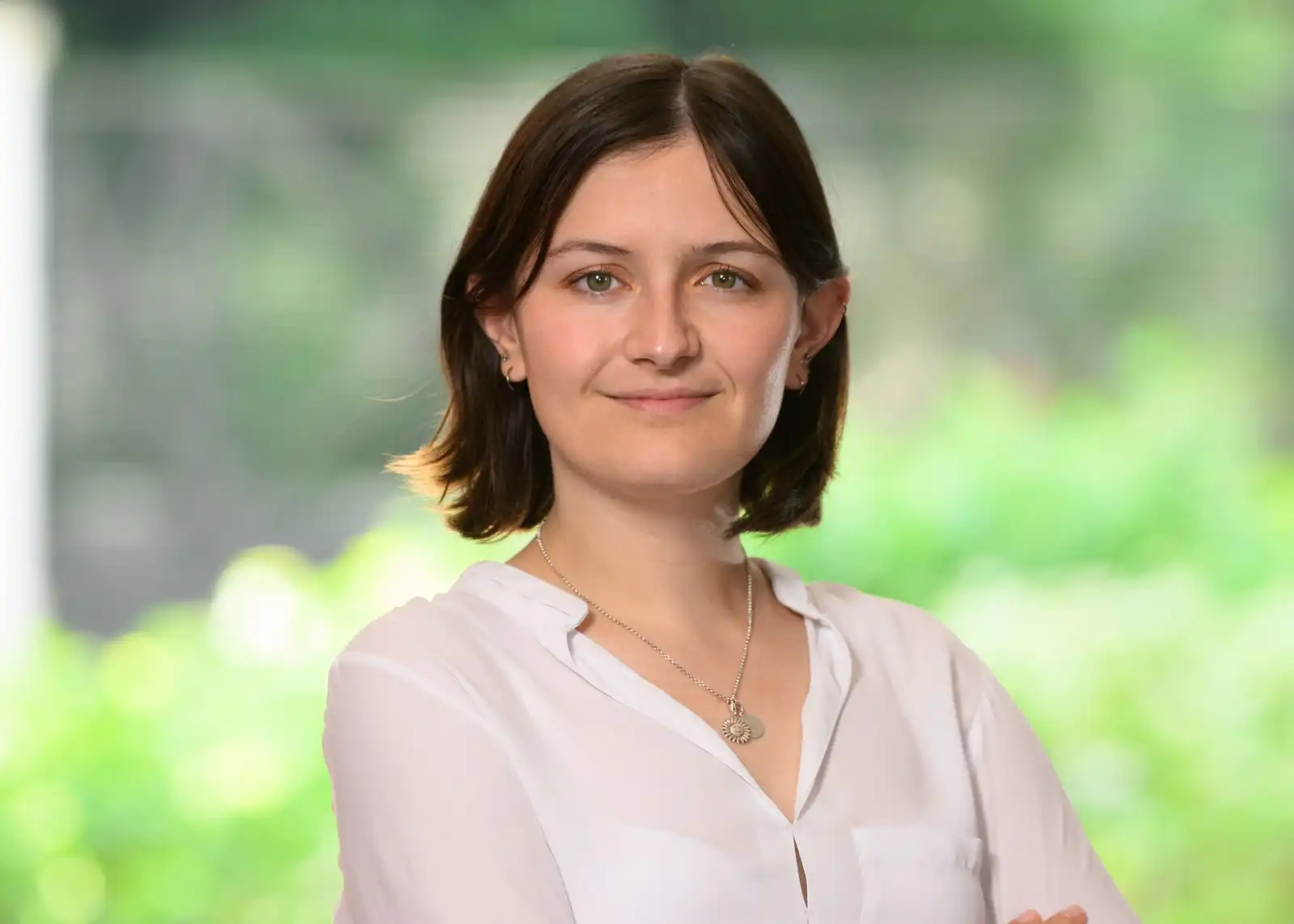Home>Julia, PhD Candidate in Political Science
11.06.2025
Julia, PhD Candidate in Political Science

Julia Gubler has graduated in International Governance and Diplomacy, with the concentration “Environment and Sustainability”. She also wrote a Master’s thesis, focusing on how international climate discourse is reflected in EU trade agreements. Swiss citizen, she is a PhD candidate in Political Science at the World Trade Institute in Bern. Her doctoral thesis also focuses on the intersections of trade policy and climate action.
What are your main responsibilities?
As a PhD candidate, my main task is to advance my thesis project. However, my position is part of a larger research project, funded by the Swiss National Science Foundation. I am part of a small team, consisting of the supervising professor and three PhD students, including myself. I am therefore not only conducting research for my own project, but also the team. Currently, our team is designing a survey to investigate how trade and climate elites think about different policy options linking trade and climate. In order to advance my own research, I am focusing on strengthening my methodological skills, diving into the literature and exchanging with other researchers and practitioners in the field. The PhD also provides me with opportunities for teaching: I will be leading a series of workshops at the institute’s summer school this year. The most important skills I am using everyday are analytical and critical thinking skills, as well as creativity: I critically assess current literature, analyse how different methods and concepts could be applied to my own research and try to think outside the box to make a valuable contribution to academic discourse.
How did you prepare for your PhD?
Without knowing it at the time, my master’s thesis turned out to be the best preparation for the job. It taught me to develop my own vision, manage the steps of a larger project on my own initiative, and use my time efficiently and effectively. It also showed me that, while I like research, I also like to work in a team, and not completely on my own. The assistance I received from my master’s thesis supervisor was also helpful in developing my professional goals: She encouraged me to participate in a research workshop during my master’s, where I connected with PhD students in the field I was interested in, which helped me get a more accurate picture of what it means to do a PhD. Between my master’s degree and the start of my PhD, I had the opportunity to work in different international organisations, thanks to a fellowship. There, I also gained insight into the practical aspects of the issues I was interested in researching. These experiences also helped me build a network that inspires and serves me today.
What is the most fascinating part of pursuing a PhD?
The most fascinating and rewarding part of my PhD is the opportunity to completely immerse myself into the topics I am interested in, whether they are directly related to my thesis or not. In academia, I am surrounded by people with vast amounts of knowledge and experience, so listening to their perspectives is incredibly enriching. My job gives me a lot of freedom to explore different research topics, invest in my skills the way I see fit, travel, and meet and collaborate with other researchers. Most importantly, the job gives me the opportunity to pass on my own knowledge through teaching, and through my research hopefully contribute to advancing solutions for global problems.
How did your PSIA experience contribute to preparing for a PhD?
PSIA first and foremost nourished my curiosity in many different topics, allowing me to make connections between seemingly unrelated issues. The large variety in classes allowed me to explore my interests and ultimately find the topic I am passionate about. Getting to know people from all over the world and from different backgrounds was an enriching experience. During my master’s, I was also able to improve my writing and presentation skills, which I use almost daily.
What advice would you give to current students?
Follow your curiosity and work on improving your skills, but most importantly, don’t forget to enjoy yourself!
Information Sessions: Masters

Find out more about the Masters programs and the wide choice of specialisations offered by the 8 Schools of Sciences Po during our webinars dedicated to applicants.